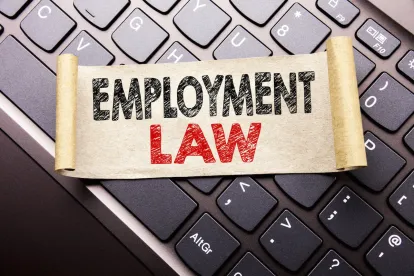Scalia Officially Nominated.
Although the Buzz mentioned the nomination of Eugene Scalia to be secretary of labor seven weeks ago, the management-side attorney wasn’t officially nominated until August 27, 2019. Will this delay push back Scalia’s confirmation hearing, U.S. Senate vote, and potential confirmation? Perhaps. Nevertheless, the Buzz still thinks that the process will get rolling in the next few weeks. Will the delay impact the ongoing regulatory agenda at the U.S. Department of Labor? Stay tuned.
NLRB to Address Offensive Conduct Standard.
Over the last eight years or so, the National Labor Relations Board (NLRB) has come under criticism for protecting workers who use profane or racially or sexually charged language in the workplace simply because the offensive comments were made in a context that included some element of Section 7 activity. Critics suggest that such decisions conflict with employers’ duties under federal law to provide workplaces that are free of harassment. In acknowledging this criticism, on September 5, 2019, the NLRB solicited public input on whether it should “adhere to, modify, or overrule the standard applied in previous cases in which extremely profane or racially offensive language was judged not to lose the protection of the National Labor Relations Act (NLRA).” Briefs are due by November 19, 2019.
NLRB Rules on Misclassification.
In February 2018, the NLRB asked the regulated community, “Under what circumstances, if any, should the Board deem an employer’s act of misclassifying statutory employees as independent contractors a violation of Section 8(a)(1) of the Act?” On August 29, 2019, in Velox Express, Inc., the Board answered that question when it ruled that an employer’s misclassification of its employees as independent contractors does not, by itself, violate the National Labor Relations Act. The decision puts to bed—at least for the time being—the novel “misclassification is a violation” theory previously advanced by former general counsel Richard Griffin but not addressed by the Board.
EEOC Oversight.
Ever since the 2018 elections ushered in Democratic hegemony in the U.S. House of Representatives, the Buzz has often discussed federal legislators’ use of their oversight authority as an effective check of the executive branch. For example, the NLRB recently received a congressional inquiry containing some probing questions (and demands) on how it operates. Well, late last week, it was the Equal Employment Opportunity Commission’s (EEOC) turn. Leaders of the House Committee on Education and Labor sent EEOC Chair Janet Dhillon a letter noting “the decrease in the agency’s staffing levels, coupled with decreases in the charge inventory, raises questions about whether the EEOC has developed policies that elevate expedience over due process.” The letter contains approximately two dozen requests for documentation and data on how the Commission processes, investigates, and closes cases. The Buzz will be watching to see how the EEOC responds and what impact the letter may have on case processing protocols.
We’re From the Government and We’re Here to Help.
Continuing its trend of offering guidance to the regulated community, this week the Office of Federal Contract Compliance Programs (OFCCP) announced that on September 11, 2019, it will host a webinar designed to help contractors prepare for Section 503 focused reviews that are scheduled to commence this fall. The webinar will specifically address the scheduling process, the focused review process, common problem areas, and best practices. Presumably, the webinar will build upon guidance that OFCCP issued on the 503 focused reviews earlier this year. More details, including registration information, are here.
I Want My 10 Dollars.
On September 4, 2019, U.S. Citizenship and Immigration Services (USCIS) published a proposed rule that would “require petitioners seeking to file H-1B cap-subject petitions to pay a $10 fee for each registration they submit to U.S. Citizenship and Immigration Services (USCIS) for the H-1B cap selection process.” According to the proposal, the fee is intended to cover the start-up and recurring costs associated with the electronic preregistration system established earlier this year. Comments will be due on October 4, 2019.
Labor Day Anniversary.
This past Monday, September 2, 2019, marked the 125th anniversary of Labor Day as a federal holiday. As far back as 1882, Labor Day had been celebrated locally, and by 1894, 23 states enacted their own Labor Day holidays (though the exact dates often differed). The bill to make Labor Day a federal holiday, S. 730, was introduced in 1893, but Congress did not act until the summer of 1894, and on June 28 of that year, President Grover Cleveland signed the bill into law. Since then, the day serves as a way to honor America’s workers while marking the unofficial end of both summer and “peak hot dog season.”




 />i
/>i

